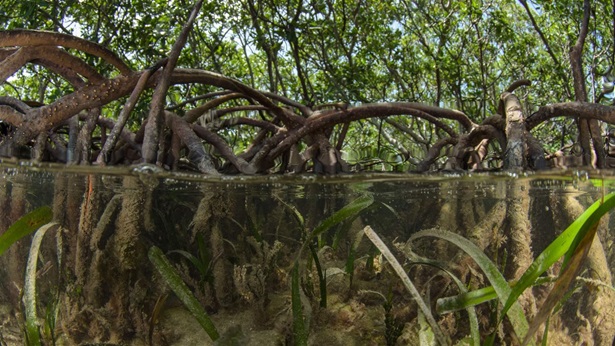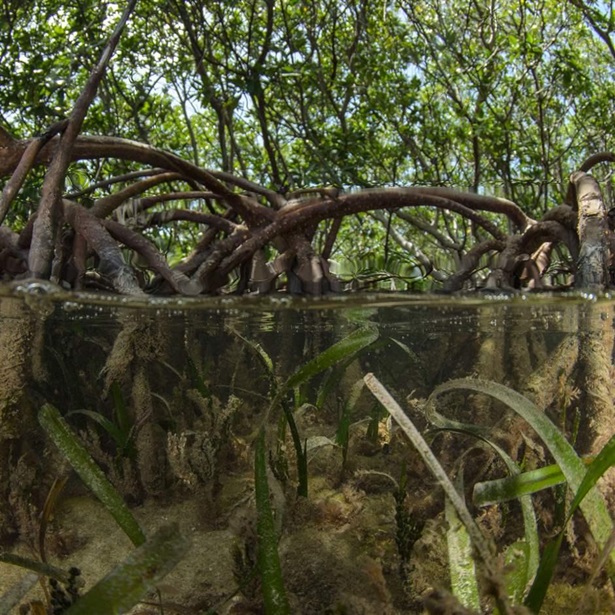Coastal wetlands host some of the richest biodiversity on the planet. Salt marshes, seagrass beds, and mangrove forests are refuges for wildlife and nurseries for juvenile fish, including commercially important species such as groupers and snappers.
As with coral reefs, these habitats help coastal communities adapt to a changing climate by stabilizing shorelines and serving as a buffer from storms.Coastal wetlands are also important for mitigating the effects of climate change because they sequester large amounts of carbon in the soil.
Yet coastal habitats are among the most threatened ecosystems. In the past 50 years, half of the world’s mangroves have been destroyed, according to the Global Mangrove Alliance. And in recent decades, at least a third of coral reefs have been lost because of warming waters, habitat destruction, pollution, overfishing, and ocean acidification.
The United Nations’ 2015 Paris Agreement, adopted by 196 parties, established the framework through which countries committed to reducing carbon emissions and building resilience to climate change impacts. Protecting “blue carbon” ecosystems—namely seagrass beds, mangroves, and salt marshes—as nature-based solutions can help mitigate the effects of climate change, as well as help coastal communities adapt to climate impacts.
In January 2019, Pew launched the protecting coastal wetlands and coral reefs project to support the inclusion of comprehensive and measurable coastal wetlands protections in updated nationally determined contributions (NDCs) to the Paris Agreement.
Over the ensuing three years, Pew partnered with local organizations, research institutions, and governments in Belize, Costa Rica, and Seychelles to fill country-specific research, policy, and finance gaps for mangrove and seagrass conservation. These efforts have strengthened local expertise and capacity through knowledge-sharing activities, and they have supported community outreach, including partner-led educational workshops. As a result of efforts by Pew and its partners, all three countries included ambitious coastal wetlands protections in their updated 2020-21 NDCs.
Building on the project’s initial success, Pew is expanding its efforts to accelerate wetlands conservation at a national scale in the Caribbean and Latin American and Western Indian Ocean regions. By working with local and regional partners, the project will continue to provide technical assistance and strengthen local capacity in research, policy, and finance, which will enable nations to develop and implement NDCs that include robust commitments to protect or restore their coastal wetlands.


'Blue Carbon': An Ally in Fighting Climate Change
OUR WORK
This video is hosted by YouTube. In order to view it, you must consent to the use of “Marketing Cookies” by updating your preferences in the Cookie Settings link below. View on YouTube
This video is hosted by YouTube. In order to view it, you must consent to the use of “Marketing Cookies” by updating your preferences in the Cookie Settings link below. View on YouTube
This video is hosted by YouTube. In order to view it, you must consent to the use of “Marketing Cookies” by updating your preferences in the Cookie Settings link below. View on YouTube
This video is hosted by YouTube. In order to view it, you must consent to the use of “Marketing Cookies” by updating your preferences in the Cookie Settings link below. View on YouTube
This video is hosted by YouTube. In order to view it, you must consent to the use of “Marketing Cookies” by updating your preferences in the Cookie Settings link below. View on YouTube
This video is hosted by YouTube. In order to view it, you must consent to the use of “Marketing Cookies” by updating your preferences in the Cookie Settings link below. View on YouTube


